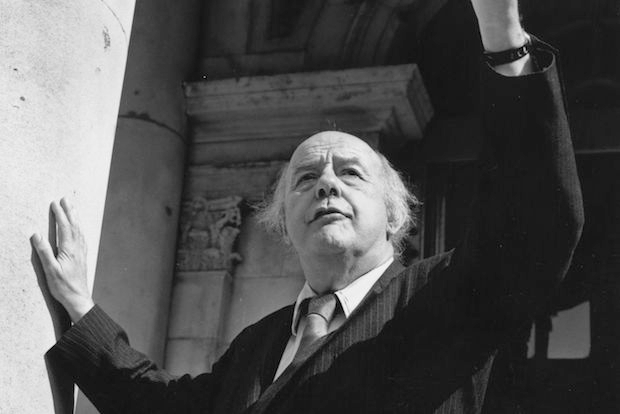Basil Ransome-Davies Reading poetry’s a marvel when you’re back be’ind the line Under shelter, feeling ’uman, where the whizzbangs never whine. Donne can make you feel religious when you’ve seen the worst of men, Yeats can write of love and nature and uplift your ’eart again, And Tennyson can bang the drum for Empire and what’s right, Radiating Britain’s greatness like a light’ouse in the night. Damn all those scribblers, though, who fancy soldiering’s a breeze, Kitted out by Samuel Brothers, with an ’amper on your knees. It’s no jolly game of cricket, and you lose your sense of fun Peerin’ out from seas of mud at the machine guns of the Hun, Lyin’ low in filthy trenches, killin’ rats and feedin’ lice. It’s the civvie brags of glory while the squaddie pays the price. No ranker is a plaster saint, but ’e’s the one who’ll give Glad answers to the rallying-call ‘who dies if England live?’
Brian Allgar Wouldst write a sonnet in the style of Will? I’faith, thou couldst have found no better master; Learn well from one who’s expert with the quill, Lest inexperience lead thee to disaster. Study my verse, and ponder long upon it; Heed rhyme and metre; add, upon a whim, A little sauciness to spice thy sonnet, Knowing thy readers love a hint of quim. Senescent bards there be who favour Petrarch; Perchance his forms may please some dullard soul Enjoying but the spoils of a tetrarch. A quarter-share? Nay, let the prize be whole! Reserve some fancy for thy final line; ’Ere long, the extra fiver shall be thine.
W.J. Webster A poet from my youth I learnt no trade Lest Busyness should leave my Art bewray’d; Eluding also Hymen’s fatal yoke (Xanthippe was Love’s dream, before he woke!) At ease alone I form’d my thoughts in verse, Now fashioning a paean, now a curse, Determin’d always, that in ev’ry line Each word would bear the shape of my design. Remote from mighty seats of Wealth and Pow’r, Proud poets ’scape the Palace, and the Tow’r; Our part to show Man memorably to Man (Portray’d, face pox’d or fair as best we can) Eve’s heirs and Adam’s from when Time began.
Sylvia Fairley Evening finds me fantasising on the spirits that are rising, Death and dying is my forte, burial that’s premature, Ghoulish themes are my fixation, undead souls and their damnation, As I turn for inspiration to the plight of dead Lenore, Ravens knocking at my door.
Ah, I wed my little cousin, tender years, a baker’s dozen; Latterly a funeral shroud replaced the wedding gown she wore. Lying in the throes of mourning, in my grief the truth was dawning, After death, she could be spawning gruesome tales for evermore; No more bailiffs at the door.
Pensively have I debated why these lines have been truncated, Only thirteen allocated, while I yearned for many more, Expounding all that’s gone before . . .
David Silverman While in the rainy season, which began In mid-September, lasting till July, Long were the tedious hours I would spend, Lethargic, languid, looking at the rain In buckets lashing down upon the lake, A sight so touching in its misery, My spirits sank with every soggy morn.
We splashed and sloshed along the muddy lanes Or sheltered ’neath the trees till it might cease. Rain! Rain shares every memory of my youth: Damp drizzle, mizzle, pelting cats and dogs: Slow would he be of wit, who’d sojourn here, Who’d book a hostelry in Ambleside, Or waste a wet weekend by Windermere — Rough was it in the Lakes to be alive, Though to be young was frankly quite depressing — How come Lord Byron gets to go to Greece?
Philip Roe Listen to the noble story Of the wise and peaceful Indians. Never mind the factual errors Glaring errors, foolish errors. Feel the air and hear the music Echoing across the prairie. Listen to the jarring rhythm. Listen to the lengthy story Of the world before the white man With its frequent repetitions.
Chris O’Carroll Time runs until Standing still. Everything decays — Lays, ancient lays. I feel numb. Over and over I hum Tiddely pam, tiddely pem, tiddely pim, tiddely pom, tiddely pum.
The next challenge is to come up with the most boring lecture topic you can and submit an extract from that lecture. Please email entries of up to 150 words to lucy@spectator.co.uk by midday on 25 March.





Comments